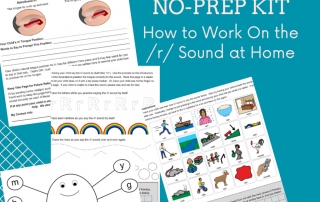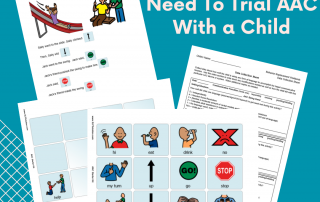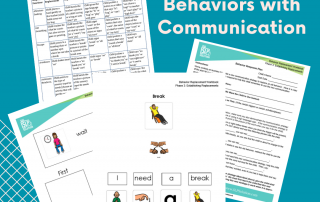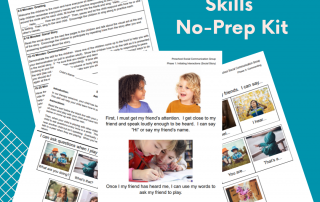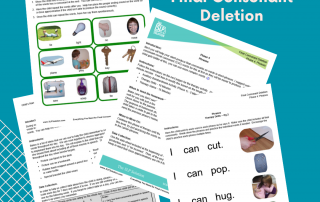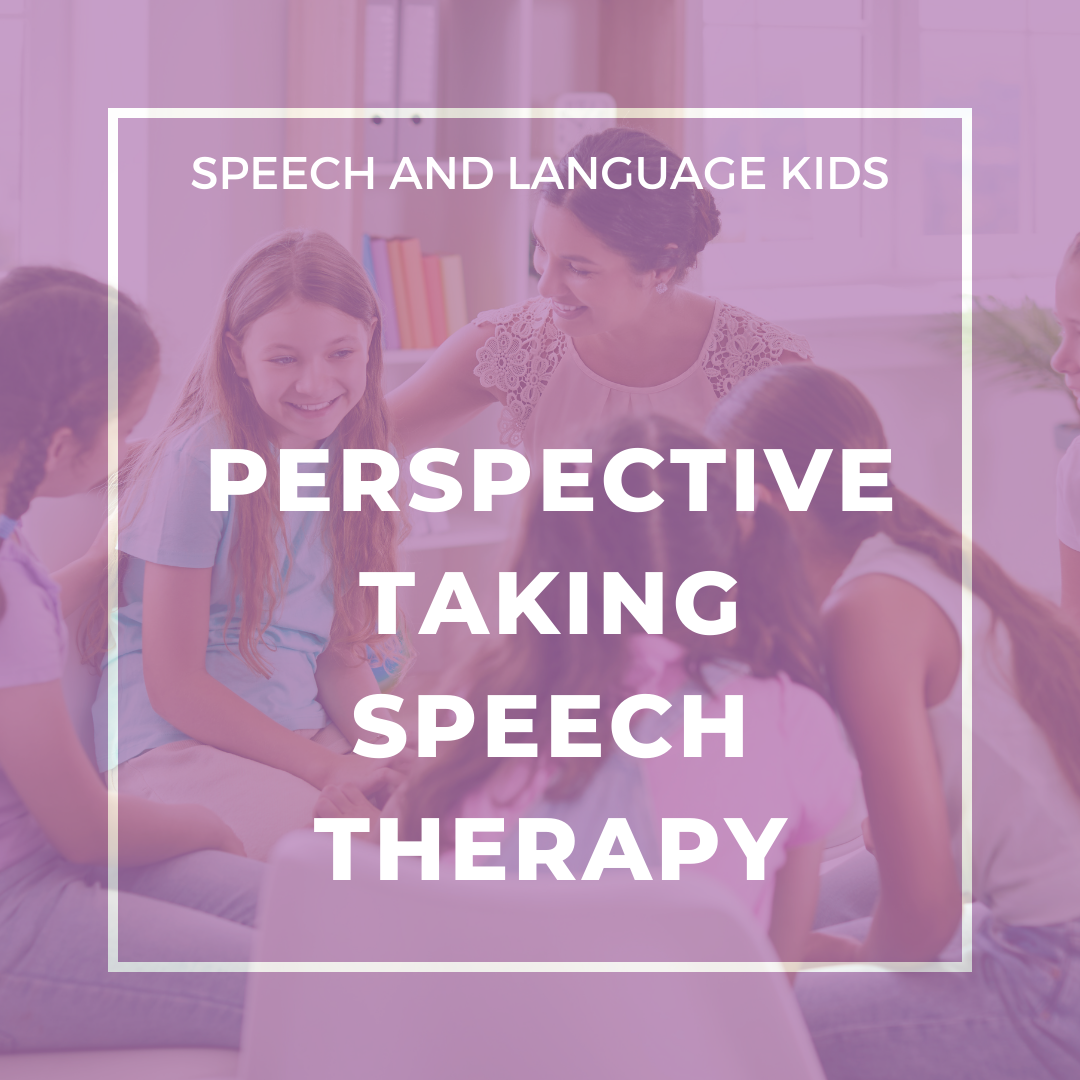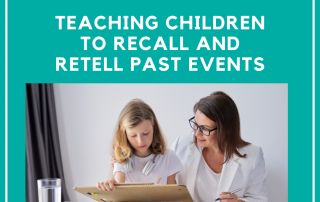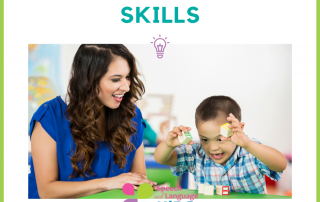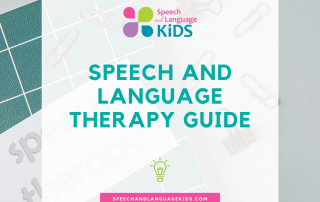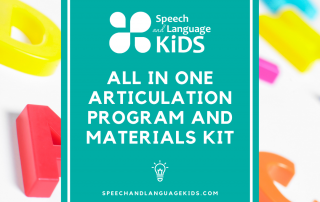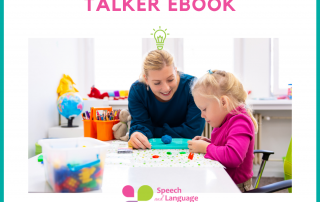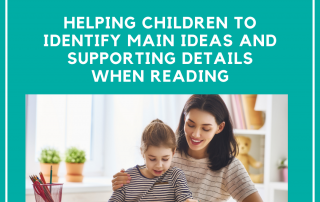Topic:
Resource Type:
Results:
/r/ Homework: How to Work on the /r/ Sound at Home (No Prep Kit)
⬅ Back to Speech and Language Kids Store View Shopping Cart Add to Cart /r/ Homework: How to Work on the /r/ Sound at Home (No Prep Kit) Need some homework help for the /r/
AAC Starter Kit: Everything You Need to Trial AAC with a Child (No Prep Kit)
⬅ Back to Speech and Language Kids Store View Shopping Cart Add to Cart AAC Starter Kit: Everything You Need to Trial AAC with a Child (No Prep Kit) All children deserve the right to
Replacing Challenging Behaviors with Communication for Non-Verbal and Emerging-Verbal Children (No Prep Kit)
⬅ Back to Speech and Language Kids Store View Shopping Cart Add to Cart Replacing Challenging Behaviors with Communication for Non-Verbal and Emerging-Verbal Children (No Prep Kit) Children who are not able to communicate effectively
Preschool Social Group Kit: Initiating and Maintaining Conversation During Play (No Prep Kit)
⬅ Back to Speech and Language Kids Store View Shopping Cart Add to Cart Preschool Social Group Kit: Initiating and Maintaining Conversation During Play (No Prep Kit) The development of conversational skills begins through play
Dealing with Awareness and Emotions in Disfluency (No Prep Kit and Workbook)
⬅ Back to Speech and Language Kids Store View Shopping Cart Add to Cart Dealing with Awareness and Emotions in Disfluency (No Prep Kit and Workbook) When we work with clients who stutter, it’s extremely
Everything You Need to Treat Final Consonant Deletion (No-Prep Kit)
⬅ Back to Speech and Language Kids Store View Shopping Cart Add to Cart Everything You Need to Treat Final Consonant Deletion (No Prep Kit) Need to treat final consonant deletion? We literally have EVERYTHING
Perspective Taking Speech Therapy |Teaching Social Perspective Taking
Perspective Taking Speech Therapy Children with social language impairments can have a lot of trouble taking the perspective of others. This can cause trouble with social interactions and navigating daily interactions. Lauren DiBiase shares with us her 5 steps (plus a bonus step!) for improving perspective-taking in children.
Teaching Children to Recall and Retell Past Events
Teaching Children to Recall and Retell Past Events: Children with communication challenges often have trouble retelling past events. This may make it hard for them to tell you about something that happened or communicate clearly about past events. In order for a child to be able to retell
Sequencing Activities for Kids | Sequencing Skills
Join the Hub to Access Sequencing Activities for Kids Sequencing is the skill that we use when we break down an event into simple steps and put those steps in order. We need sequencing skills to talk about something that
Persuasive Writing for Kids: How to Teach Persuasive Writing
Persuasive Writing for Kids What is Persuasive Writing? Persuasive writing is a type of writing skill that is expected of high schoolers in the United States. According to the common core curriculum, children in 9-12th grades must be able to express their ideas in discussions persuasively. The goal of
Apraxia of Speech: Speech Therapy Activities for CAS
Childhood Apraxia of Speech: How to Do Speech Therapy for CAS Childhood Apraxia of Speech (CAS) is a rare, neurologically-based speech disorder where the child knows what he wants to say but the message gets mixed up in the motor-planning and execution phase so the sounds come out
Teaching Children to Repair Communication Breakdowns
How to Help a Child Repair Communication Breakdown "Communication Breakdown" is what we call it when something goes wrong in a conversation and there is a misunderstanding. Our communication can break down for a number of reasons but most of the time, we are able to clarify the
Speech and Language Therapy Guide PLUS All-In-One Articulation Program and Materials Kit
⬅ Back to Speech and Language Kids Store View Shopping Cart Add to Cart Speech and Language Therapy Guide PLUS All-In-One Articulation Program and Materials Kit eBook Our two most popular products together! Worksheets and
Speech and Language Therapy Guide
⬅ Back to Speech and Language Kids Store View Shopping Cart Add to Cart Speech and Language Therapy Guide PLUS All-In-One Articulation Program and Materials Kit eBook. My two most popular products together! Speech and Language
Improving Summarizing Skills in Children Through Literacy
Today, speech-language pathologist Carrie Clark explains how to help a child learn to summarize an event or story through the use of literacy activities. Listen below! Show Notes: Step One: Teach Main Idea Click Here to See How to Teach Main Idea Click Here to Download my
All-In-One Articulation Program and Materials Kit
⬅ Back to Speech and Language Kids Store View Shopping Cart Add to Cart Speech and Language Therapy Guide PLUS All-In-One Articulation Program and Materials Kit eBook. My two most popular products together! All-In-One Articulation Program
Jump Start Your Late Talker
⬅ Back to Speech and Language Kids Store View Shopping Cart Add to Cart Jump Start Your Late Talker eBook This 8-week program will show you what you can do at home to help jump
Supporting Details and Main Idea Examples & Teaching Tools
Main Idea and Supporting Details This learning guide will demonstrate how to help a child learn to identify main idea and supporting details in a written text as well as to include them in their own writing. We'll provide examples and definitions along the way. We use
Cycles Approach for Speech Therapy | Steps and Therapy Plan
What is the Hodson Cycles Approach to Speech Therapy? An amazing speech-language pathologist named Barbara Hodson created the cycles approach, sometimes called the Cycles Phonological Remediation Approach as a way to help children with many phonological processes make faster progress in speech therapy. Hodson's research showed that
Establishing Joint Attention: Therapy for Children Who Aren’t Tuned In
Establishing and Improving Joint Attention in Children Join the Hub to Access (Free Trial) Johnny doesn’t pay attention to other people. He doesn’t notice the other children that play around him and when an adult tries to get his attention,

